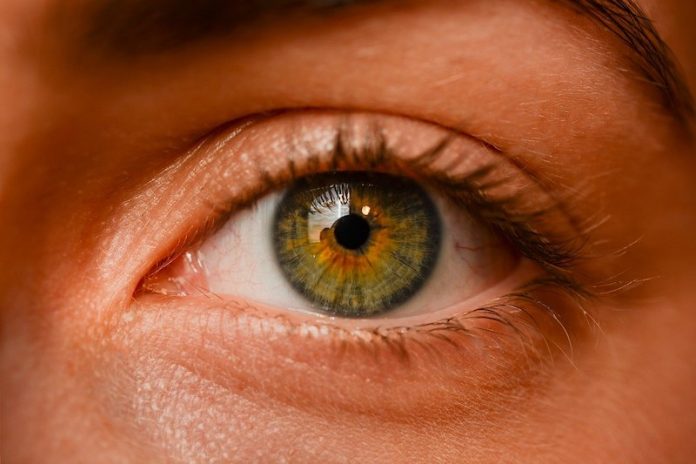
In a new study from UCL, researchers found simple vision tests can predict which people with Parkinson’s disease will develop cognitive impairment and possible dementia 18 months later.
The study adds to evidence that vision changes precede the cognitive decline that occurs in many, but not all, people with Parkinson’s.
In another new study, the same team found that structural and functional connections of brain regions become decoupled throughout the entire brain in people with Parkinson’s disease, particularly among people with vision problems.
The two studies together show how losses and changes to the brain’s wiring underlie the cognitive impairment experienced by many people with Parkinson’s disease.
Previous studies have found that people with Parkinson’s disease who have visual problems are more likely to get dementia, and that appears to be explained by underlying changes to their brain wiring.
Vision tests might provide a window of opportunity to predict Parkinson’s dementia before it begins, which may help find ways to stop the cognitive decline before it’s too late.
In the first study, the team examined 77 people with Parkinson’s disease and found that simple vision tests predicted who would go on to get dementia after a year and a half.
Dementia is a common, debilitating aspect of Parkinson’s disease, estimated to affect roughly 50% of people within 10 years of a Parkinson’s diagnosis.
The finding suggests that performance in vision tests was linked to the risk of cognitive decline.
The study also found that those who went on to develop Parkinson’s dementia had losses in the wiring of the brain, including in areas relating to vision and memory.
The researchers used recently developed methods to analyze finely detailed MRI scans, enabling them to pick up the damage to the brain’s white matter.
The researchers identified white matter damage to some of the long-distance wiring connecting the front and back of the brain, which helps the brain to function as a cohesive whole network.
The second study involved 88 people with Parkinson’s disease (33 of whom had visual dysfunction and were thus judged to have a high risk of dementia) and 30 healthy adults as a control group, whose brains were imaged using MRI scans.
In the healthy brain, there is a correlation between how strong the structural (physical) connections between two regions are, and how much those two regions are connected functionally.
That coupling is not uniform across the brain, as there is some degree of decoupling in the healthy brain, particularly in areas involved in higher-order processing, which might provide the flexibility to enable abstract reasoning.
Too much decoupling appears to be linked to poor outcomes.
The researchers found that people with Parkinson’s disease exhibited a higher degree of decoupling across the whole brain.
Areas at the back of the brain, and less specialized areas, had the most decoupling in Parkinson’s patients.
Parkinson’s patients with visual dysfunction had more decoupling in some, but not all brain regions, particularly in memory-related regions in the temporal lobe.
The research team also found changes to the levels of some neurotransmitters (chemical messengers) in people at risk of cognitive decline, suggesting that receptors for those transmitters may be potential targets for new drug treatments for Parkinson’s dementia.
Notably, while dopamine is known to be implicated in Parkinson’s, the researchers found that other neurotransmitters — acetylcholine, serotonin and noradrenaline — were particularly affected in people at risk of cognitive decline.
The two papers together help understand what’s going on in the brains of people with Parkinson’s who experience cognitive decline, as it appears to be driven by a breakdown in the wiring that connects different brain regions.
If you care about Parkinson’s disease, please read studies about this personality trait linked to Parkinson’s disease and findings of a novel light-based treatment for dementia, Parkinson’s disease.
For more information about Parkinson’s disease and your health, please see recent studies about a new smell test for Parkinson’s, Alzheimer’s and COVID-19 and results showing that these vitamins may help prevent Parkinson’s disease.
The study is published in Movement Disorders. One author of the study is Dr Angeliki Zarkali.
Copyright © 2021 Knowridge Science Report. All rights reserved.



